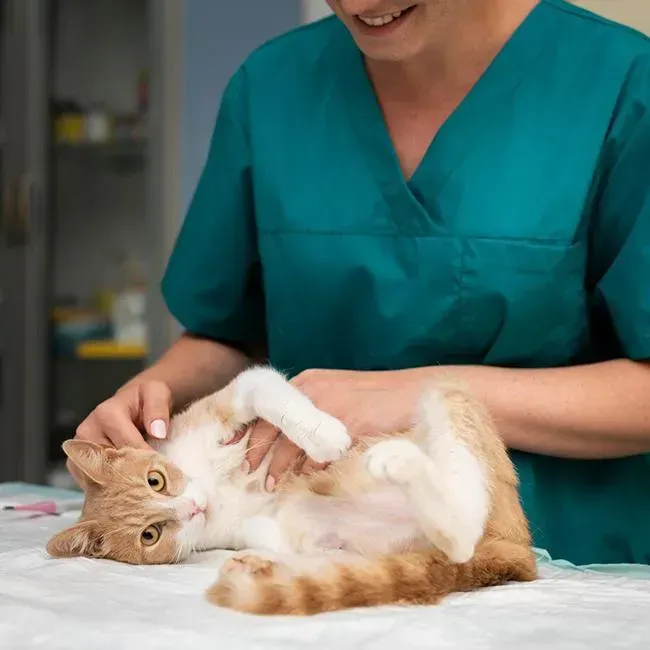Cat Dermatology in Stockton, CA – Expert Skin Care for Your Feline
Cats are known for their meticulous grooming, but they can still experience various skin issues. Dermatology in cats is an important field that helps pet owners understand and manage skin and coat problems, which can affect a cat's overall health and happiness. This guide provides an overview of common cat skin issues and offers tips on maintaining your cat's skin health.
Common Skin Issues in Cats
Allergies: Cats, like humans, can develop allergies. These may include food allergies, environmental allergies (pollen, dust mites), and flea allergies. Common symptoms include itching, excessive grooming, hair loss, and skin lesions.
Parasites (Fleas and Mites): Fleas are a major cause of skin irritation in cats, leading to itching, scratching, and even skin infections. Mites, such as ear mites, can also cause discomfort and dermatitis.
Fungal Infections (Ringworm): Ringworm is a fungal infection that causes circular, scaly patches on the skin. It is contagious to other animals and humans, so immediate treatment is essential.
Bacterial and Yeast Infections: Skin infections in cats often result from scratches or wounds that become infected. Yeast infections, while less common, can occur in moist areas and lead to itching and redness.
Acne: Cats can develop acne, especially around the chin. It appears as blackheads or pimples and can be treated with gentle cleaning.
Skin Tumors and Growths: Though not as common, older cats can develop skin tumors or growths. These should be checked by a veterinarian to ensure they are benign.
Signs of Skin Problems in Cats
Excessive scratching or grooming
Hair loss or bald patches
Redness, swelling, or sores
Scaly or flaky skin
Changes in skin color or texture
Diagnosis and Treatment
If your cat shows signs of skin issues, it’s best to consult a veterinarian. They may perform skin scrapings, allergy tests, or biopsies to diagnose the issue. Treatments can range from topical ointments to dietary changes and medications, depending on the condition.
Tips for Healthy Cat Skin and Coat
Regular Flea Control
Preventing fleas is crucial to avoid skin irritation. Use vet-recommended flea control treatments regularly.
Balanced Diet
A high-quality, balanced diet rich in essential fatty acids (like omega-3s) helps maintain a healthy skin and coat.
Grooming
Regular brushing not only keeps your cat’s coat smooth but also helps remove dead skin cells and distributes natural oils.
Manage Allergens
For cats with environmental allergies, frequent cleaning of their bedding and living spaces can help reduce allergens.

Testimonial
What They Say

Was looking for a new Vet near me in Stockton and very happy with Walker Vet Hospital! Customer service, informative, and compassionate with staff and doctors. Give a 10 out of 10. Taking all three of my dogs there happily.


Rae W.

Good value and knowledgeable. No waiting most of the time. Always 2-3 doctors at a time and weekend care available which is appreciated. All of our three dogs been going to Walker Vet in Stockton for some time now. Never any complaints.


Nick G.

Review Us!
Visit our Google review page to share your feedback

Review Us!




